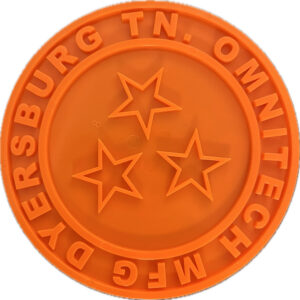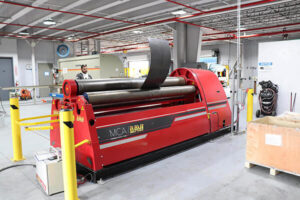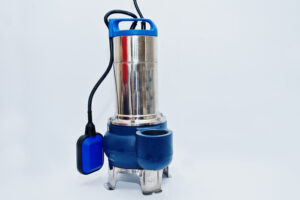
According to Buddhism, the natural cycle of life includes birth, life, death, and being reborn. Their funeral traditions, therefore, aim to facilitate the transition of recently deceased loved ones into the afterlife. The Buddha’s teachings on impermanence are frequently brought up during funerals. Buddhist funerals are commonly impacted by regional culture, and because there are numerous Buddhist denominations, these rites may vary.
There are, however, a few funeral rites that practice by almost all forms of Buddhism. If you want to know more about a Buddhist funeral in Singapore, this post is helpful for you.
What Exactly Are Buddhist Funerals?
By region, as well as by ethnic and cultural heritage, the Buddhist community in the United States differs. Buddhist burial rites and traditions may be infused with Christian beliefs by certain families, while other families may opt to follow funeral customs that are almost exclusively Buddhist.
Nevertheless, a straightforward ceremony held at the family home, a funeral home, or a Buddhist temple is the standard protocol for Buddhist funerals.
If the family chooses to combine customs with the Christian religion, there will be an officiate, who is typically a monk but occasionally a minister or priest. Although there are no set rules, one can anticipate prayer, meditation, and possibly sermons and eulogies.
Buddhist Funeral Customs:-
There may be a wake when mourners can pay their respects to the deceased and offer their sympathies to the family. In front of the casket, there will probably be a portrait of the deceased. This is the focal point of the altar that the family erects for the wake.
Candles and other offerings like fruit and flowers are also present on the altar. There will also be incense burning. Flowers may be exhibited subtly if the wake is being held in a funeral home. According to Buddhist custom, a statue of Buddha must also be set close to the altar.
Although embalming is allowable, Buddhists generally prefer cremation. Families make decisions based on their preferences. When a person is buried or cremated is not subject to any regulations.
On the morning of the burial or cremation ceremony, Buddhist funeral rites are performed. Verses are recited, and monks may ask to lead the ritual following Buddhist funeral customs. Again, it depends on what the family wants. The family may just do the burial or cremation service.
The giving of organs is not forbidden in Buddhism. Autopsies are also permitted since they consider a manner of assisting others. They do prefer that a doctor wait three to four days before doing an autopsy until the soul has left the body.
Buddhist Rites of Passage:-
According to Buddhist tradition, dying should take place among close friends and family, in a serene setting. To support the dying person in their upcoming reincarnation, they should consider the good things they have performed together throughout their lives.
Additionally, family members and friends can carry out kind deeds that they feel will benefit the deceased on their behalf.
After someone has passed away, their body should not be touched, moved, or otherwise disturbed for at least four hours. This is due to the Buddhist doctrine that the soul does not immediately depart from the body. The body must be kept cool, cleaned, and dressed in regular attire.
What To Anticipate At A Buddhist Memorial?
Buddhist monasteries or a family’s home are typically where funeral rites execute. According to Buddhist funeral customs, Buddhist monks contact to handle the service. They will read lectures and conduct chants or sutras (Buddhist funeral prayers).
An image of the deceased and an image of Buddha are put close in a straightforward open casket where the body is displayed. In addition to candles, fruit, flowers, and lit incense, mourners may place them around the body. Following the ceremony, the coffin is sealed and taken to the crematory. The rest of the mourners should form a funeral procession as friends and relatives carry the casket to the hearse.
What Are Buddhists’ Rituals At Funerals?
Buddhist burial practices include:
- Presenting the deceased’s garment to the monk
- Placing a deceased person’s and Buddha’s images on the alter
- Filling up a cup with water by transferring it from a source
- Walking with sticks represents that they require support during their mourning
- Singing or chanting the proper sutras (prayers)
- Bringing in tributes in the form of flowers, candles, and fruit
- Incense burning
- Sounding bells or gongs
Final Words
Buddhist funerals are a special and significant procedure to celebrate the deceased’s spiritual path. In contrast to traditional funerals, the spiritual needs of the person who passed away are given more importance than the emotional needs of the family members.
A funeral planner who is familiar with Buddhist traditions and practices should be consulted if you are organizing a Buddhist funeral. Buddhist funerals may be a lovely and poignant way to say goodbye to a loved one with the correct planning and instruction.
If you are looking for a Buddhist Funeral service in Singapore, you can go through Hock Hin Undertaker. The Hock Hin Undertaker has a staff of skilled experts who can assist in the planning and execution of both contemporary and traditional funerals. The Buddhist funeral package they offer includes preparation of the deceased, provision of the casket, funeral procession, chanting services, and cremation or burial arrangements.








